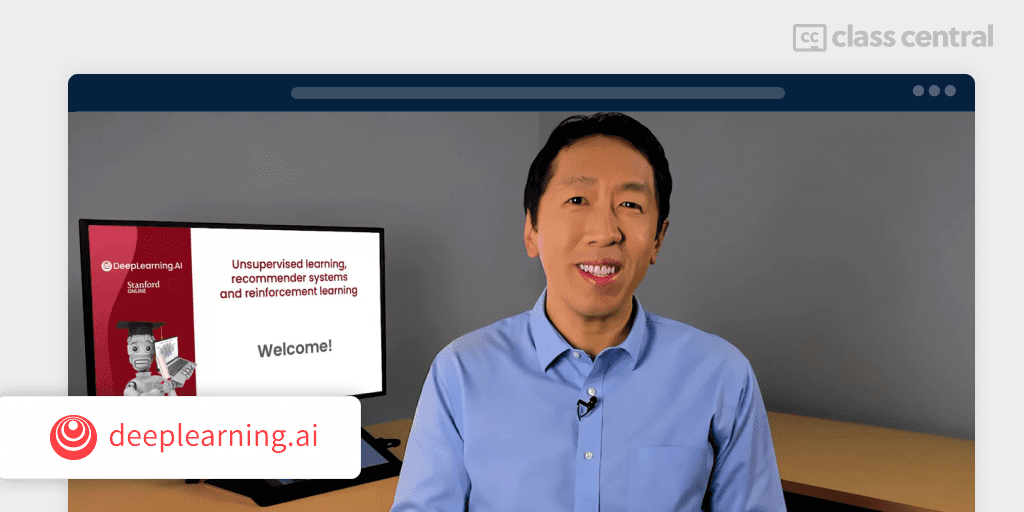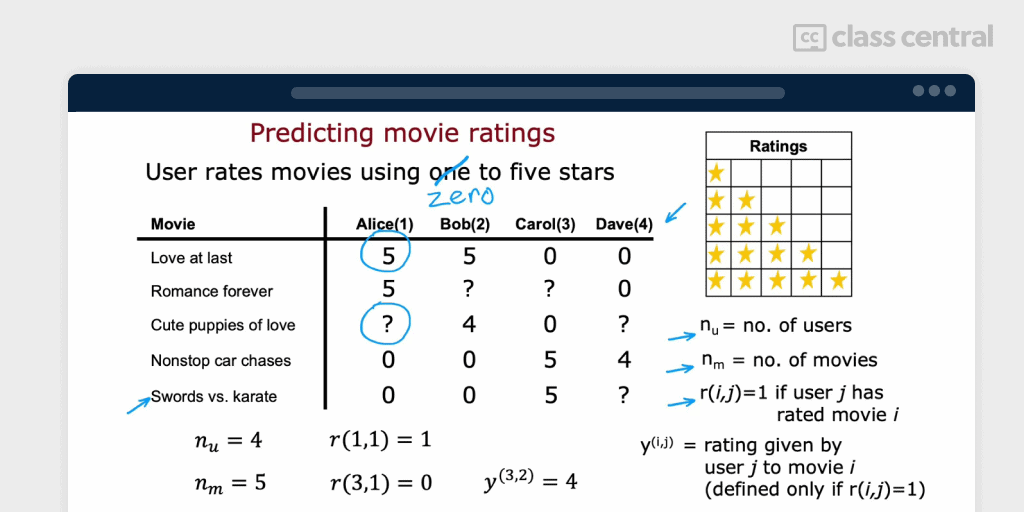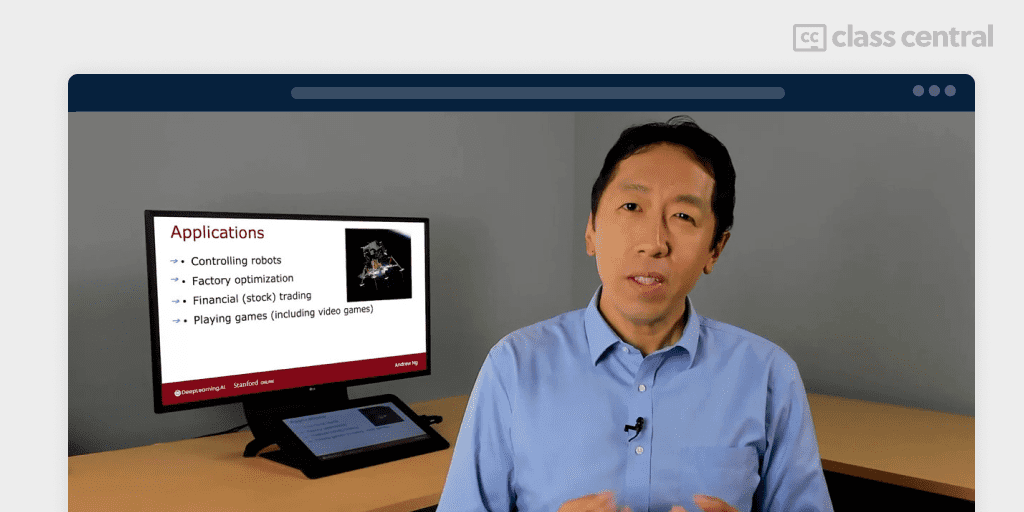Review: Unsupervised & Reinforcement Learning – Part 3 of Machine Learning Specialization
Third and last course of Prof. Andrew Ng’s Machine Learning Specialization, successor of the most popular MOOC of all time.

In this third and final course of the Machine Learning Specialization, you’ll step out of the familiar territory of supervised learning and broaden your toolset with other powerful machine learning techniques in the Unsupervised Learning, Recommenders, Reinforcement Learning course by DeepLearning.AI.
If you haven’t read my review of the first and the second course in this series, you can check them out here:
- Review: Supervised Machine Learning – Part 1 of Machine Learning Specialization
- Review: Advanced Learning Algorithms – Part 2 of Machine Learning Specialization
This course (and the entire specialization itself) is the spiritual successor of its previous 2011 iteration. That machine learning course was one of the first massive open online courses (MOOCs) to ever be released for free on the Internet, pioneering the way for other courses to do the same. By the end of its lifetime, over 4.8 million students had taken the course, hence earning its place as one of Class Central’s most popular courses of all time.
Andrew Ng, the instructor, was greatly inspired by the success of his course. He and another Stanford processor Daphne Koller went on to co-found Coursera which has arguably become one of the most successful course providers to date. He also has a wealth of experience behind him, having directed groundbreaking AI research projects like Google Brain which created TensorFlow, Baidu where he worked on big data and AI, DeepLearning.AI which creates courses on artificial intelligence like the very one you’re looking at right now, and finally Landing.AI which provides AI-powered SaaS products.
So having heard the legacy of the course and the man behind the course, let’s get into the contents!
Overview of the Syllabus
The aim of this course is three-fold, with each week focusing on one aspect of the course.
- Use unsupervised learning techniques for unsupervised learning: including clustering and anomaly detection.
- Build recommender systems with a collaborative filtering approach and a content-based deep learning method.
- Build a deep reinforcement learning model.
In the first week, you’ll begin with an overview of unsupervised learning. Whereas supervised learning involves labeled data, unsupervised learning does not. You’ll learn how to apply clustering algorithms like the k-means algorithm, which groups similar pieces of data into the same ‘bucket’, and anomaly detection, which detects data that don’t fit the trend. You’ll also find that clustering has many important practical applications, such as market segmentation to help businesses identify groups of consumers to market to, as well as anomaly detection to help banks identify potentially fraudulent transactions.
Recommender systems is one of the most commercially important machine learning technologies; just think of the many times you’ve been recommended relevant items while shopping online or scrolling through social media. The second week breaks down the technology behind recommender systems. In Tensorflow, you’ll implement collaborative and content based filtering recommender systems. But more importantly, you’ll also discuss the ethical implications to consider when deploying recommender systems.

The final week of the course switches gears by discussing reinforcement learning. Perhaps you have heard of AlphaZero beating other AIs in chess, or AI playing hide and seek together. That is the work of reinforcement learning, where agents are placed in an interactive environment and are rewarded for desired behaviors while being punished for undesired behavior, that is, learning from trial and error. The final week will teach you about reinforcement learning to the point where you’ll build a deep Q-learning neural network that can land a virtual lunar lander on Mars!

Course Pedagogy
This course, like the other courses in the specialization, is taught especially well thanks to Andrew Ng’s ability to turn the abstract into something that you can wrap your head around. By giving real-world examples of neural networks in action and motivations behind the math of some algorithms, he is able to condense large amounts of theory into small manageable chunks. In addition, there are also the occasional in-video questions that quiz you on what you’ve just watched to make sure that you’re paying attention.
Each week in the course comes with quizzes that help you prepare for the best part of the course — the labs. Through practice labs, you’ll gain practical experience coding neural networks and machine learning systems while also applying valuable advice from the course.
Also, if you need help with any of the course’s exercises or are perplexed by some of the course’s material, you’ll find that the course’s Discourse community is full of passionate and helpful individuals who’ll do their best to help you out.
So should you take this course?
This course is great for those who either have taken the previous course in this series or already have some knowledge of Tensorflow programming / machine learning in general but want to further their skills or refresh their memory. Do note that the course is a little math heavy, so you might want to brush up on your linear algebra and calculus to keep up with some of the more advanced material.
Sadly, anyone auditing the course will not have access to the practice quizzes or labs, so those students are advised to take detailed notes from the lectures and try to implement the course materials by themselves or find other exercises to supplement their learning.
I have individually reviewed all the courses in this specialization, and I’ll soon give my verdict on the specialization itself. Stay tuned for my full review of Andrew Ng’s Machine Learning specialization!






